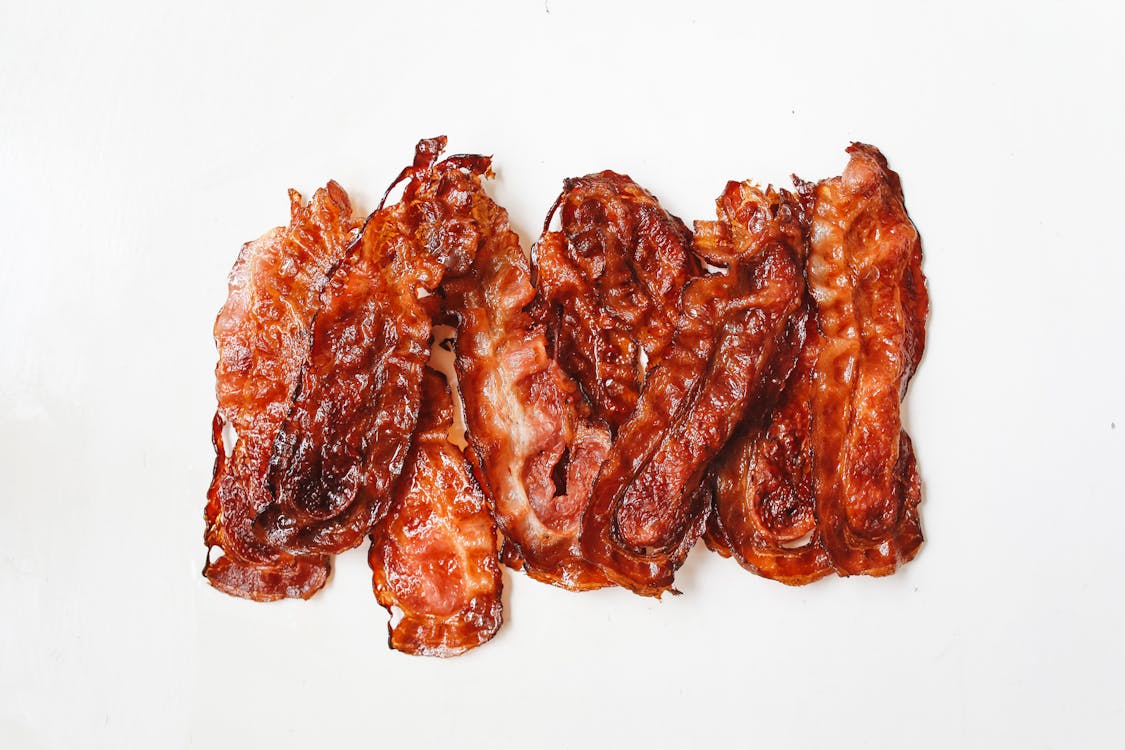What is the nutritional value of bacon? Is it really a good source of protein? What’s the difference between bacon and ham? Do you know how many calories are in bacon? We’ll answer these questions and more in this post.
What Is Bacon?
Bacon can be used to make many different dishes. Some of these include breakfast, lunch, dinner, snacks, appetizers, side dishes, main courses, desserts, and more. If you want to learn how to cook with bacon, then this article will help you to understand the nutritional value that each type of bacon contains.
When cooking with bacon, it’s important to know the calories in each serving. The calorie count for a single slice of bacon varies depending on the brand and the amount of fat in it. For example, a typical piece of bacon from McDonald’s has around 100 calories. However, the same piece of bacon from Subway has only 35 calories.
A pound of raw bacon usually has about 500 calories. This means that you can expect to have roughly 50 slices of bacon per week.
If you’re trying to lose weight, then you should try to limit your consumption of bacon. It has lots of saturated fats and sodium. You might also find yourself craving it when you’re dieting. So, if you really don’t like the taste of pork products, then you need to cut back on them.

Where Does Bacon Come From ?
Bacon is a popular food item that many people enjoy eating. But, did you know where the term “bacon” comes from?
You may have heard the expression “eating like a pig,” but this doesn’t mean that you should eat as much pork as possible. The word “pig,” in fact, actually refers to the type of meat that most pigs produce. This means that the expression was originally referring to the amount of fat that your body produces.
But, why do people call bacon a delicacy? Well, it’s true that people who don’t consume large amounts of fatty meats can develop health problems. However, the main benefit of bacon is that it contains a lot of protein and other nutrients.
So how exactly is bacon made? It starts with a hog that has been raised on grain instead of grass. Afterward, they are slaughtered, skinned, and cut into pieces. Then, these parts of the animal are cured, smoked, or cooked in different ways.
The final product is then ready to be served. However, there are some varieties of bacon that are not usually prepared in this way. For example, you may find Canadian bacon or breakfast sausage.
How Many Calories in Bacon?
It’s true that bacon is high in calories. However, the amount of calories you can get from bacon is directly proportional to the amount you eat. That’s because bacon is made mostly of fat. Fat is the most calorie dense food source on the planet, so eating too much of it can cause you to gain weight.
Bacon is made up of about 30% fat, which is higher than most other foods. This means that one slice of bacon has a lot of calories. One cup of bacon has about 300 calories. A single serving of bacon has about 80 calories.
Bacon is very easy to overeat. In fact, the average person eats about 100 grams of bacon per week. That translates to about 7 cups of bacon per month. A serving of bacon is about 2 grams, so a person would need to eat about 2 servings of bacon per week to meet their daily requirements of 200 calories.

Is Bacon Healthy to Consume ?
Bacon is a delicious food that many people enjoy eating. There are also certain foods that can be considered unhealthy due to the amount of calories contained within them. This article will discuss whether consuming bacon is healthy, as well as how much you should eat.
It’s true that bacon contains a lot of fat. However, the type of fats found in bacon are actually good for your body. The main thing to keep in mind when thinking about bacon consumption is to make sure you’re getting enough protein from other sources. If you don’t have any meat available, then you can always get some beans or eggs.
You need to make sure that you aren’t overdoing it when you start to eat bacon. While a small portion of bacon isn’t going to hurt you, you may end up feeling bloated if you eat too much. It’s best to stick with one or two slices of bacon at most.
The next question you’ll probably ask yourself is whether you should eat bacon every day. Although there is no harm in having bacon on a regular basis, it won’t do anything for your health. You shouldn’t feel compelled to eat bacon each and every mealtime.

